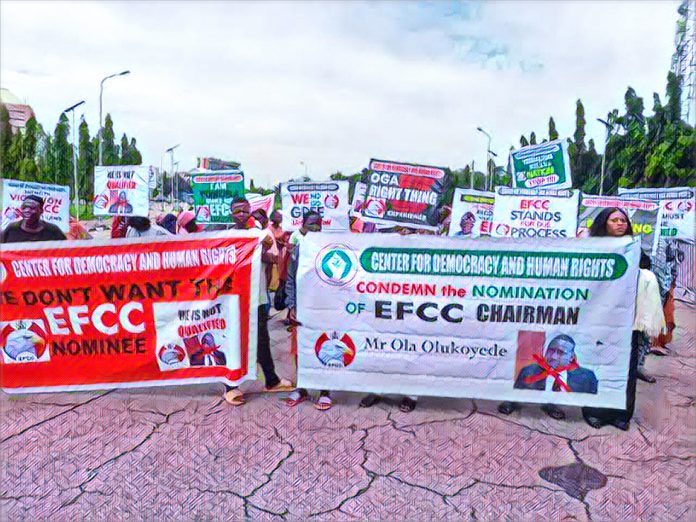Nigeria’s President Bola Tinubu has nominated Ola Olukoyede and Muhammad Hammajoda as the new heads of the country’s anti-corruption agency, the Economic and Financial Crimes Commission (EFCC). The Senate received a letter from Tinubu on Tuesday, seeking the confirmation of Olukoyede as the EFCC Chairman and Hammajoda as Secretary, according to the Deputy Senate President, Jibrin Barau.
The appointment came after Tinubu suspended the former EFCC chairman, Abdulrasheed Bawa, in June over allegations of corruption and abuse of office. Bawa had been accused of diverting funds recovered from corrupt officials, awarding contracts to his cronies, and disobeying court orders.
Tinubu said he appointed Olukoyede, a lawyer and former chief of staff to Bawa, to ensure continuity and stability in the EFCC. He also said he chose Hammajoda, a retired police officer and former director of operations at the EFCC, to bring his experience and expertise to the agency.
However, the nomination of Olukoyede has sparked protests from some civil society groups, who claim he is not qualified for the position. The groups, led by the Centre for Democracy and Human Rights, staged a demonstration at the National Assembly on Tuesday, saying Olukoyede’s appointment violated the law that established the EFCC.
The law stipulates that the EFCC chairman must be a serving or retired member of any government security or law enforcement agency not below the rank of Assistant Commissioner of Police or equivalent. The groups also alleged that Olukoyede was involved in some shady deals with Bawa and had a questionable academic background.
They urged the Senate to reject his nomination and call for a transparent and competitive process to select a new EFCC chairman. The Senate has not yet fixed a date for the screening of the nominees. The EFCC is Nigeria’s main anti-graft body, responsible for investigating and prosecuting cases of financial crimes, money laundering, and corruption.
The agency has been plagued by leadership crises, political interference, and allegations of corruption since its inception in 2003. Several former EFCC chairmen have been removed or suspended over various charges, including Nuhu Ribadu, Farida Waziri, Ibrahim Lamorde, and Ibrahim Magu.
The EFCC has also faced criticism for its selective prosecution of opposition politicians and critics of the government, while ignoring cases involving ruling party members and allies. Despite these challenges, the EFCC has recovered billions of naira from corrupt officials and secured several convictions in local and foreign courts.
The agency has also collaborated with international partners such as the United States, United Kingdom, Switzerland, and United Arab Emirates to track and repatriate stolen funds from Nigeria. The EFCC has vowed to continue its fight against corruption and improve its performance and accountability under its new leadership.
Source: PUNCH



